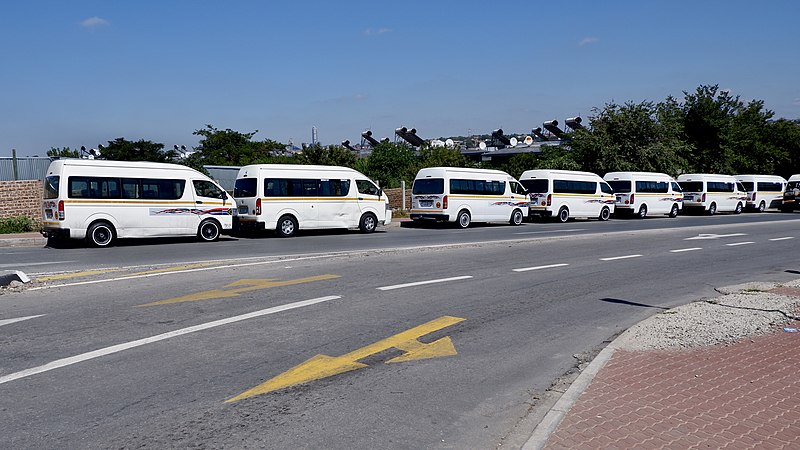The Rainbow Nation is an ideal home for many expats. A developed and cosmopolitan country, South Africa offers a modern, urban lifestyle, just a few kilometers from a rich and diverse natural environment. The formalities involved in living here are no more complicated than in other countries, whatever your reason for leaving (expatriation, retirement). Once you’re here, we can assure you that you’ll enjoy life in South Africa immensely!
What kind of visa is required for expatriation to South Africa?
Like most other countries, South Africa offers several types of visa, mainly tourist or resident. Converting a tourist visa into a resident visa is possible, but tedious. It is often simpler to start the process of obtaining your final visa beforehand, for example a work visa if you are expatriating to South Africa for professional purposes.
Work visas are among the main visas used by expats employed in South Africa:
- General work visa: This visa is valid for a maximum of 5 years for the duration of the employment contract.
- Critical skills work visa: Also valid for 5 years. The difference between this visa and the General Work Visa is that it can be issued without a promise of employment. It facilitates the application of foreign employees with the skills and qualifications sought in specific industries, such as finance, technology, science or medicine. The beneficiary must, however, provide proof of employment within 12 months of obtaining the visa.
- Intra-company transfer work visa: Valid for 4 years, this visa allows employees of a multinational company to join the South African branch.
When trying to obtain one of these visas, you may be confronted with the slow processing times of the South African immigration services.
Working in South Africa
The job market in South Africa is quite dynamic. However, the country suffers from high unemployment, and employers are more likely than elsewhere to give preference to South African employees.
To work in the Rainbow Nation, you’ll need to be fluent in English. Indeed, mastering the English language is crucial to expatriating to South Africa. It is one of the eleven recognized official languages (twelve, including sign language since July 2023).

Then, to maximize your chances of employment, you can try to apply to sectors requiring the valuable “critical skills” so in demand by expats in South Africa. The level of education and possession of a good diploma is quite important to get a decent job.
If you’re a digital nomad or freelancer, the “Mother City” is probably the most popular destination. Cape Town offers an ideal living environment for these workers, with numerous co-working spaces and cafés.
Among the negative aspects of working in South Africa, job security is certainly a black mark, being higher than the OECD average.
Health services
The South African healthcare system can be divided into public and private systems, both of which face management challenges. The best health establishments in Cape Town or Johannesburg are quickly saturated, and the quality of care can vary widely.
For comprehensive coverage during your expatriation, international health insurance is the best option, as it’s best suited to your needs. It will cover your routine medical visits, as well as your trips abroad, for example. Coverage can be extended to include your loved ones, so you can be sure of the best possible expatriation experience.
NB: Before you leave, don’t forget to keep your vaccinations up to date, especially against yellow fever, which is compulsory for any trip to South Africa.
Cost and quality of life
Foreign nationals generally live quite comfortably in South Africa. Depending on the position held and the sector of activity, expats can enjoy a salary sufficient to provide a good quality of life. Cape Town is often mentioned as one of the best cities to live in South Africa, with a relatively low cost of living compared to Western developed countries (but among the highest on the continent).
As far as rents are concerned, prices vary according to the region where you live and the type of accommodation: house, inner-city apartment, etc… However, the price of housing in South Africa remains one of the major expense items when expatriating to the country. On average, you should expect to pay $380 for a 40m² city-center apartment, or $640 for an 80m² flat.
And what about the quality of life? Every expat’s experience is different, and he or she will form his or her own opinion of his or her stay, but it’s certain that the memories are often very positive, so much does the country have to offer in terms of cultural diversity, landscapes and atmospheres.
The only grey area is the negative image foreigners have of the country’s mentality and lack of tolerance. While some locals may be more reticent, it’s important not to generalize, especially as the mentality has changed a great deal and expats are well received.
The safety issue
Many expats traveling with families and children are risk-averse, and wonder whether they should move to South Africa because of the supposedly high crime rate. What do the figures say? According to several sources, including Numbeo, crime levels are considered quite high, particularly in cities such as Pretoria, Johannesburg and Durban. With the number of crimes on the rise in recent years, we advise future expats to exercise caution, without however giving in to paranoia. According to numerous testimonials from expat families, many of them have experienced no particular misfortune, and assure us that they feel at home in this country.

Education and the school system
Children’s schooling in South Africa has a good reputation, with a high standard of education. English remains the main language of instruction, with the choice of language depending on the region. International school programs are available for the children of expats, but often with very high admission fees. Parents also have the choice of placing their children in public or private schools, the latter offering a more varied education and more favorable working conditions.
Transport
Getting around South Africa is easy, whether by car, bus, train or plane. If you’re looking to travel across the Rainbow Nation, the Bazbus is a well-known transport service for South Africans. This minibus serves many destinations and operates every day, giving you great flexibility on your itinerary. Among general safety rules, hitchhiking or picking up a hitchhiker is not recommended. Women are also not advised to travel alone by bus at night, even if other travellers are using the same vehicle.
Climate
South Africa is a popular destination for its mild climate, which varies slightly from region to region between Mediterranean and oceanic climates. In Johannesburg, temperatures are very mild all year round, while inland, the difference is much more marked.
Foyer Global Health covers your health in South Africa, your home country and the rest of the world. Benefit from flexible worldwide coverage with numerous advantages, such as free choice of doctor or hospital anywhere in South Africa, and unlimited cover for all medically necessary treatment.

